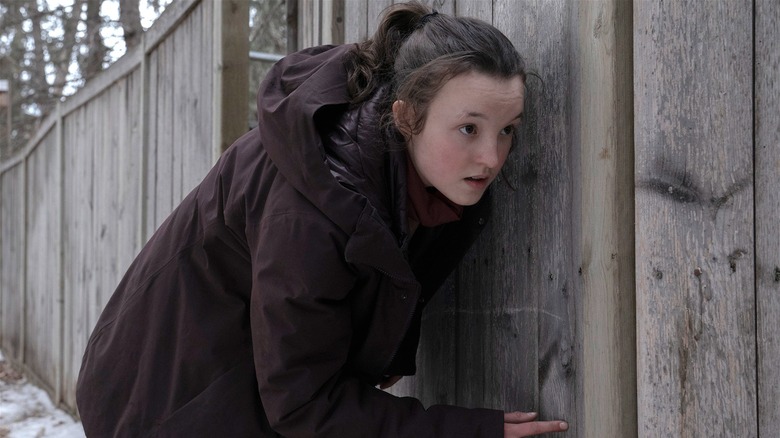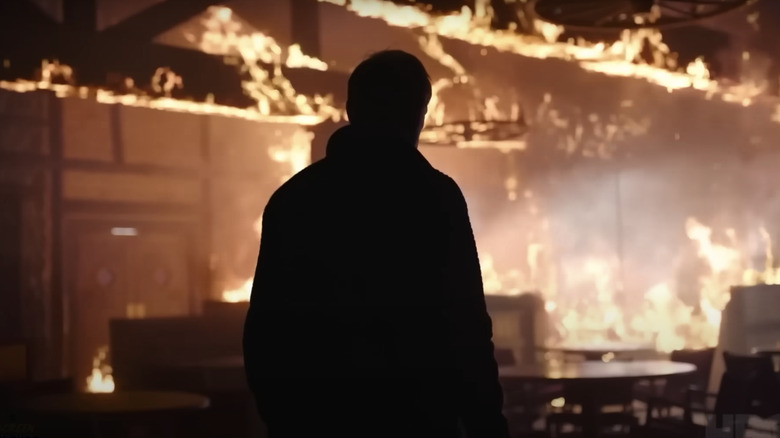TLOU Episode 8 Proves The Show Doesn't Use Action As Effectively As The Game
Contains spoilers for "The Last of Us," Season 1, Episode 8 — "When We Are in Need"
HBO's "The Last of Us" has a lot going for it. The undisputed "greatest video game adaptation of all time" boasts rave reviews, a star-studded cast, and a surprising amount of awards buzz for a genre series airing at the beginning of the year. The series is an undeniable hit — but does it achieve what the original video game did all the way back in 2013?
With nine episodes of television to tell a 10-hour game, series creators Neil Druckmann and Craig Mazin use their time well, for the most part. Villains that were once faceless grunts for the player to mow through now have motivations, feelings, history, relationships, etc. Side characters Bill and Frank get a beautiful episode dedicated entirely to their life together after the apocalypse.
And yet, whether to make room for character development or world-building, the series has made the curious choice to sideline one of the game's most important aspects: the action. To cynical players, the action might seem like a compulsory component of the zombie genre that "The Last of Us" series benefits by abandoning. On the contrary, what actually made the original "The Last of Us" game so impressive was how crucial it made combat to telling the story.
"The Last of Us" would face major gaps in character development and relationship growth if it omitted action entirely — as was, unfortunately, the case in Episode 8, "When We Are In Need."
Cutting Ellie and David's shootout was a mistake
"When We Are In Need" is a pretty straightforward adaption of the video game's bleak winter chapter. In both iterations, Ellie (Bella Ramsey in the series, Ashley Johnson in the original game) encounters a stranger named David (Scott Shepherd, Nolan North) after Joel (Pedro Pascal, Troy Baker) is mortally wounded during their recent scrape with danger. What makes David so compelling is that neither Ellie nor the audience knows if he can be trusted, a fact which is compounded by her increased vulnerability with Joel bedridden. It's a test of Ellie's desire to trust others.
For this to work, however, the audience and Ellie actually need a reason to trust David. Right after David sends his companion away to retrieve the medicine in the game, David and Ellie are attacked by a horde of infected. Fighting side-by-side furthers their relationship faster than dialogue could ever hope to, with the duo developing a sense of camaraderie during the battle. Even smaller moments, like when Ellie realizes David had a second gun all along or when he restocks her ammo, allow David to become a trustworthy figure. Without the battle, the characters have no opportunity to have any kind of relationship, making David's turn limp and meaningless.
The show's odd unwillingness to use action to forward the story seemingly betrays a disappointing underestimation of the game's original qualities. "The Last of Us" is at its best when it marries combat with focused, progressive storytelling. If the series can't get a handle on that, an adaption of the infamously bloody "Part II" could turn this misstep into a fatal flaw.

